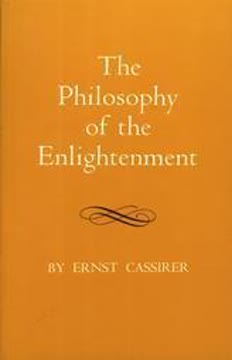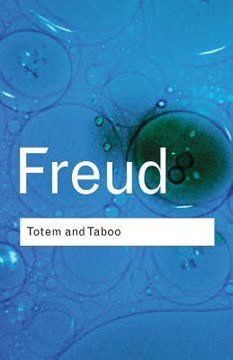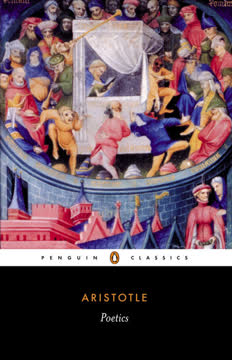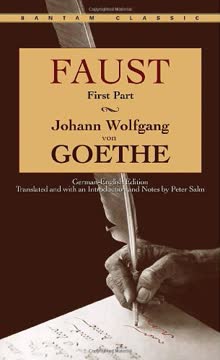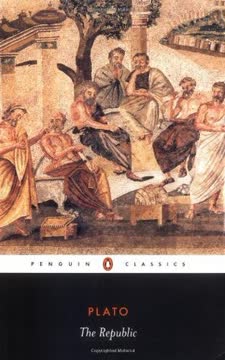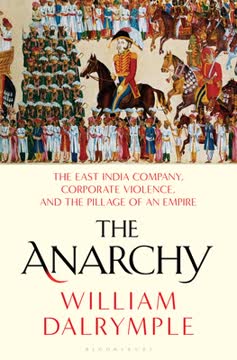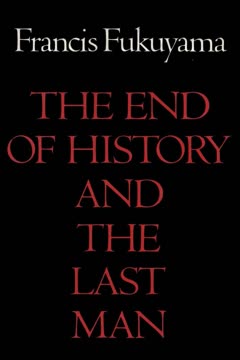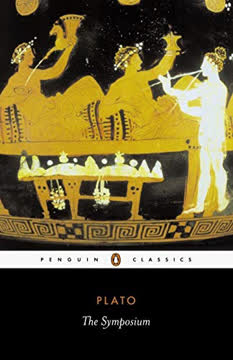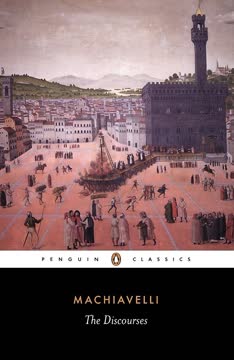Key Takeaways
1. The Enlightenment's Core: Reason as Dynamic Analysis
The Enlightenment had, therefore, to be approached in its characteristic depth rather than in its breadth, and to be presented in the light of the unity of its conceptual origin and of its underlying principle rather than of the totality of its historical manifestations and results.
A profound shift. The Enlightenment marked a pivotal intellectual transformation, moving beyond the 17th century's rigid "spirit of systems" to embrace a more dynamic "systematic spirit." This wasn't merely an expansion of knowledge but a qualitative redefinition of how knowledge itself was acquired and understood. The era sought to uncover the underlying unity of thought, not just catalog its diverse manifestations.
Newton's analytical model. Central to this shift was the profound influence of Isaac Newton's scientific method. Unlike Descartes, who deduced knowledge from a priori principles, Newton proceeded by analysis, moving from observed phenomena to the principles that explained them. This inductive approach became the blueprint for all Enlightenment thought, emphasizing that reason was not a static repository of innate truths but an active, energetic force capable of discovering and shaping reality through empirical investigation.
Reason as agency. This re-conception of reason as an active "agency" rather than a passive "being" permeated various fields. It dissolved everything merely factual or based on tradition, analyzing it into its simplest components before reconstructing it into a new, comprehensible whole. This intellectual energy, driven by an insatiable curiosity, sought to understand the "how" of thought itself, believing that true understanding lay in the process of discovery, not just the results.
2. Nature Reimagined: From Divine Creation to Self-Sufficient System
The true essence of nature is not to be sought in the realm of the created (natura naturata), but in that of the creative process (natura naturans).
Nature's autonomy. The Enlightenment fundamentally re-envisioned nature, moving away from the medieval view of it as merely a divine creation. Instead, nature was seen as a self-sufficient, immanent force, participating in the divine essence through its own internal, creative processes. This shift abolished the dualism between creator and creation, asserting that God's power permeated nature itself, making it comprehensible through its own inherent laws.
Galileo and Newton's legacy. This new understanding of nature was deeply intertwined with the advancements in natural science. Galileo's analytical method, breaking down complex phenomena into their constituent conditions, and Newton's universal law of attraction, which unified celestial and terrestrial mechanics, provided tangible proof of nature's inherent order. This order was not imposed from without but discovered within the phenomena themselves, accessible through mathematical and empirical investigation.
Beyond mechanism. While early Enlightenment thought often leaned towards a mechanistic view, reducing all phenomena to matter and motion (Lamettrie, Holbach), a more dynamic and descriptive approach emerged, particularly with Diderot. He challenged the idea of fixed species, emphasizing nature's constant flux and evolution. This perspective, influenced by Leibniz's concept of continuity, paved the way for a biological understanding of nature that transcended purely physical explanations, seeing life as an unfolding process rather than a static arrangement.
3. The Human Mind: From Innate Ideas to Empirical Genesis
Locke has set forth human reason just as an excellent anatomist explains the parts of the human body.
Psychology as foundation. The Enlightenment placed psychology at the heart of epistemology, believing that understanding the human mind's genesis and development was key to determining the limits and possibilities of knowledge. This marked a decisive break from the 17th-century rationalist reliance on "innate ideas" as divine imprints, advocating instead for Locke's "historical, plain method" of empirical investigation.
Sensationalism's triumph. Condillac, a prominent figure, pushed Locke's empiricism further, arguing that all mental operations, even higher faculties like judgment and will, were merely "transformed sensations." This radical sensationalism sought to reduce all psychological phenomena to a single, irreducible source: sensory experience. The mind, rather than possessing pre-existing truths, was seen as acquiring its capacities through a continuous process of interaction with the external world.
The power of passions. Contrary to popular belief, the Enlightenment did not solely champion intellectualism. Thinkers like Vauvenargues, Voltaire, and Diderot increasingly recognized the "passions" not as mere disturbances but as original, indispensable impulses driving all mental activity, including thought and morality. Hume's skepticism further underscored this, suggesting that reason itself was often subservient to imagination and instinct, rooting even religious belief in fundamental human emotions like fear and hope.
4. Religion Transformed: From Dogma to Natural Morality and Historical Development
Everything that has a beginning will sometime have an end, and, vice versa, that which has never had a beginning can never perish.
Critique of original sin. The Enlightenment's religious thought was characterized by a profound critique of traditional dogma, particularly the concept of original sin. This dogma, seen as an insult to human reason and morality, was challenged by a renewed humanistic emphasis on human freedom and dignity, echoing the earlier debates between Luther and Erasmus. The era sought to justify human existence and morality on immanent, rather than supernatural, grounds.
The rise of deism and tolerance. Deism emerged as a dominant religious philosophy, asserting that God's nature was best understood through universal reason and the laws of nature, not through specific, often contradictory, revelations or miracles. This led to a fervent advocacy for religious tolerance, championed by figures like Bayle and Voltaire, who argued that true faith could not be coerced and that superstition, not atheism, was the greatest enemy of genuine religion.
History as divine education. Lessing, a pivotal German thinker, offered a unique reconciliation of religion and history. Rejecting Hume's skepticism that reduced religion to mere psychological instinct, Lessing proposed that history itself was a "divine plan for the education of humanity." This view transformed religious truth from a static, timeless dogma into a dynamic process of unfolding reason, where even historical contingencies and apparent errors served a higher, developmental purpose, culminating in a more profound understanding of God.
5. History's New Horizon: From Chronicle to Philosophical Inquiry
I formulated principles, and I then saw individual cases fitting these principles as if of themselves, the history of all nations being only the consequence of these principles and every special law bound to another law, or depending on another more general law.
Beyond mere facts. Challenging the notion of an "unhistorical" century, the Enlightenment actively sought to conquer and conceptually establish the historical world. Figures like Bayle, with his "Historical and Critical Dictionary," moved beyond mere chronicle, emphasizing rigorous source criticism and the "logic of facts" to discern historical truth. This approach, initially focused on exposing errors, laid the groundwork for a more accurate and methodologically sound historiography.
The spirit of laws and nations. Montesquieu's "Spirit of the Laws" marked a crucial step towards a philosophy of history, seeking not just to describe political forms but to understand their underlying "principles" and the "human passions which set it in motion." He introduced the concept of "ideal types" in history, arguing that seemingly accidental events were often consequences of deeper, general causes, including climate and soil, but ultimately driven by moral and intellectual forces.
Cultural progress and human nature. Voltaire, in his "Essay on Manners," shifted the focus from political events to cultural history, aiming to reveal the "progress of the human spirit" across civilizations. While acknowledging the immutability of human nature, he saw history as the empirical manifestation of reason gradually overcoming obstacles and realizing its potential. This perspective, further developed by D'Alembert and Condorcet, viewed history as a collection of "intellectual and moral experiments" on the human race, providing insights for future societal improvement.
6. Law and Society: Reclaiming Inalienable Rights through Rational Contract
Law in its primary and original sense, in the sense of “natural law” (lex naturalis), can never be resolved into a sum of merely arbitrary acts.
Reason as law's foundation. The Enlightenment vigorously reasserted the concept of "natural law," arguing that fundamental legal principles were not arbitrary decrees but immutable truths grounded in reason itself, independent of divine will or state power. This echoed Plato's timeless question of right versus might, with thinkers like Grotius asserting that law, like mathematics, possessed an objective structure valid even if never perfectly realized.
The social contract re-envisioned. Hobbes, a key figure, applied a "genetic" or "causal" definition to the state, viewing it as a "body" constructed from individual wills. His social contract, a "covenant of subjection," posited that absolute sovereignty was necessary to transform a chaotic "state of nature" into a civil society. However, Grotius countered with the idea of an inherent "social appetite" in human nature, arguing that the contract was founded on an original "sociability" and that authority derived its legitimacy from upholding, not negating, natural rights.
Rousseau's radical re-interpretation. Rousseau, while drawing from both Hobbes and Grotius, offered a revolutionary re-interpretation of the social contract. He rejected the idea of an innate social instinct, portraying natural man as isolated but not inherently evil. For Rousseau, true liberty and moral obligation arose only when individuals, through the "general will," collectively subjected themselves to a law they recognized as their own. This concept shifted the focus of inalienable rights from the individual against the state to the collective sovereignty of the people, making the state the guarantor, not the infringer, of true freedom.
7. Aesthetics' Evolution: From Objective Rules to Subjective Genius
All beauty is truth.
Art and reason's alliance. The Enlightenment sought to bring art under the rigorous scrutiny of reason, aiming for a "systematic aesthetics" that would unify diverse artistic forms under universal principles. Early classicism, influenced by Descartes, believed that "nothing is beautiful but the true," equating artistic perfection with adherence to objective rules, much like scientific laws. Boileau, for instance, sought to define poetic genres with the precision of a geometer defining curves.
The rise of taste and feeling. This rigid objectivism gradually gave way to a focus on subjective experience. Bouhours introduced the concept of "délicatesse," emphasizing sensitivity and the subtle, often indeterminate, aspects of aesthetic appreciation over strict logical precision. Dubos further developed this "aesthetics of sentimentalism," asserting that the value of art lay in its ability to stir emotions and that "taste" was an "inward sense" akin to physical perception, judging by immediate impression rather than abstract rules.
Genius and the sublime. Shaftesbury, however, provided the most profound shift, moving beyond mere sensation to an "intuitional aesthetics." For him, beauty was a revelation of the universe's "inner intellectual structure," accessible through the creative act of "genius" – a "second maker" akin to the divine. This led to the exploration of the "sublime" by Burke, which transcended mere beauty by evoking awe and terror, liberating the individual from conventional limits and revealing a deeper, more powerful dimension of aesthetic experience. This emphasis on the creative, intuitive power of genius laid the groundwork for later Romantic thought.
Last updated:
Review Summary
The Philosophy of the Enlightenment receives high praise for its comprehensive analysis of 18th-century thought. Readers appreciate Cassirer's exploration of key Enlightenment thinkers and themes, including science, religion, and aesthetics. Many find the book challenging but rewarding, noting its depth and philosophical insights. Some criticize its occasional lack of clarity and abstract language. Overall, it's considered a classic work that defends and illuminates the Enlightenment's intellectual contributions, though it may be better suited for readers with prior knowledge of the subject.
Similar Books
Download PDF
Download EPUB
.epub digital book format is ideal for reading ebooks on phones, tablets, and e-readers.
